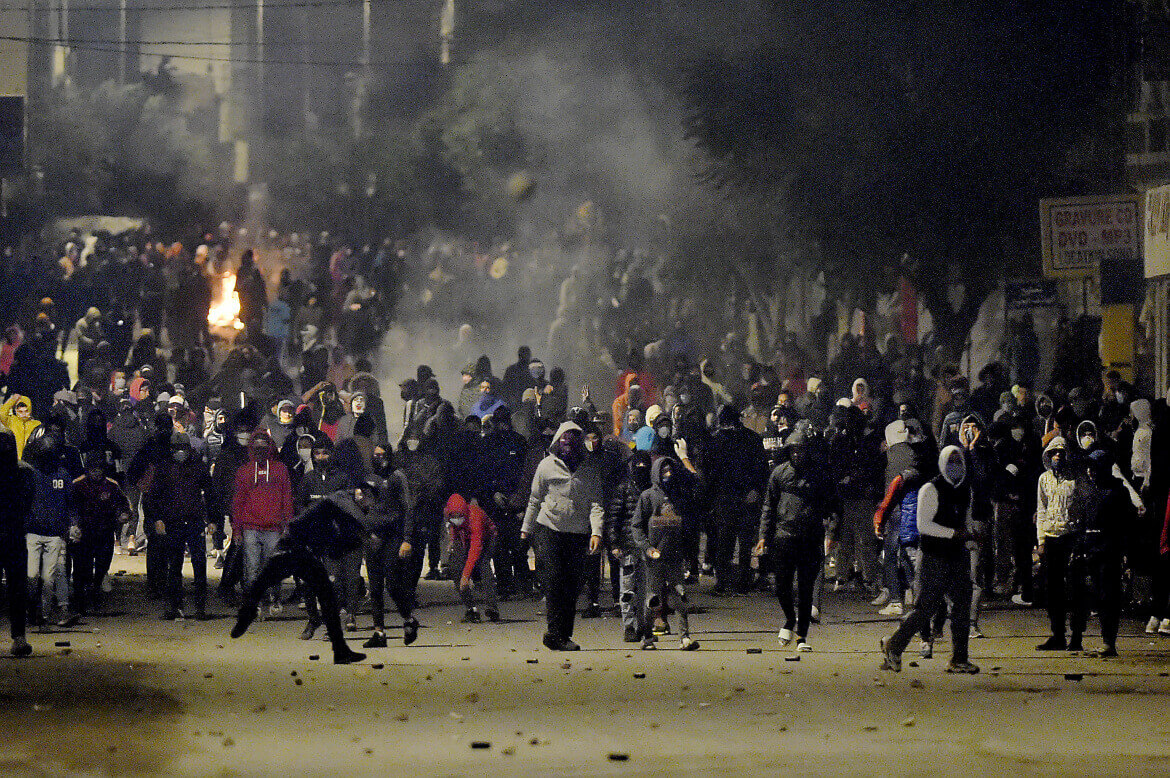Tunisian Prime Minister Hichem Mechichi’s announcement of a Cabinet reshuffle on January 16, alongside the imposition of a nationwide lockdown last Thursday, have instigated widespread protests across the country, resulting in at least 600 arrests so far, with the army deployed to quell the demonstrations.
The Cabinet reshuffle and the new lockdown restrictions, it appears, were just a launching pad for a larger protest against poverty, corruption, and injustice, with a weakening economy that is on the precipice of bankruptcy and whose public services have been severely undercut as a result.
A decade on from the Arab spring, when dictator Zine El Abidine Ben Ali was ousted from power, Tunis has ushered in many democratic reforms. However, several Tunisian citizens are extremely frustrated with the rapidly shrinking economy and plummeting living standards in the ten years that have followed.
It is estimated that one-third of Tunisia’s youth is unemployed, which perhaps explains why the vast majority of protesters were aged between 14 and 17. Tunisia’s economy has also greatly suffered due to a fall in tourism, which had already been plummeting well before the coronavirus pandemic due to the spread of radical Islamism in the country. All of this has sent consumer prices through the roof, and these problems have only been compounded by the current pandemic, with Tunisia’s economy contracting by 9% in 2020.
Corruption, too, is a major feature of popular discontent. In fact, just last July, former Prime Minister Elyes Fakhfakh was forced to resign amidst an investigation over allegations of conflict of interest, as he allegedly failed to hand over the control of his private company shares after assuming office.
Against this dire backdrop, in defiance of a nationwide night-time curfew, many young citizens took to the streets to voice their anger, with many throwing stones at municipal buildings, launching Molotov cocktails, and vandalising public property.
Interior Ministry spokesperson Khaled Hayouni said that 632 people were arrested, many for “throwing stones at police and clashing with security forces.” He said, “This has nothing to do with protest movements that are guaranteed by the law and the constitution,” and went on to say, “Protests take place in broad daylight normally... without any criminal acts involved.”
Likewise, PM Mechichi warned, “We will confront this chaos by the force of law and State’s unity.” He remarked that “legitimate” peaceful protests are “guaranteed by the law and constitution”, but that these violent protests are “unacceptable”, saying, “They are delinquents, mostly minors, who have committed these acts to sow total chaos in the country. But the security units responded with great professionalism.” Mechichi added, “Protests take place in broad daylight... without any criminal acts involved.”
Meanwhile, President Kaïs Saied suggested that the protesters were backed by Islamist forces “acting in the shadows to sow chaos”.
Rights groups like Amnesty International, however, have said that “unnecessary and excessive force” was used against the protesters.
The protests have now continued into their fourth day and show no sign of relenting.
Tunisian Youth Protesters Violently Clash With Security Forces, Over 600 Arrested
Many young citizens have taken to the streets of Tunisia over the last four nights to protest against poverty, corruption, and injustice.
January 20, 2021

IMAGE SOURCE: FETHI BELAID / AFPInterior Ministry spokesperson Khaled Hayouni said that 632 people were arrested, many for “throwing stones at police and clashing with security forces.”
